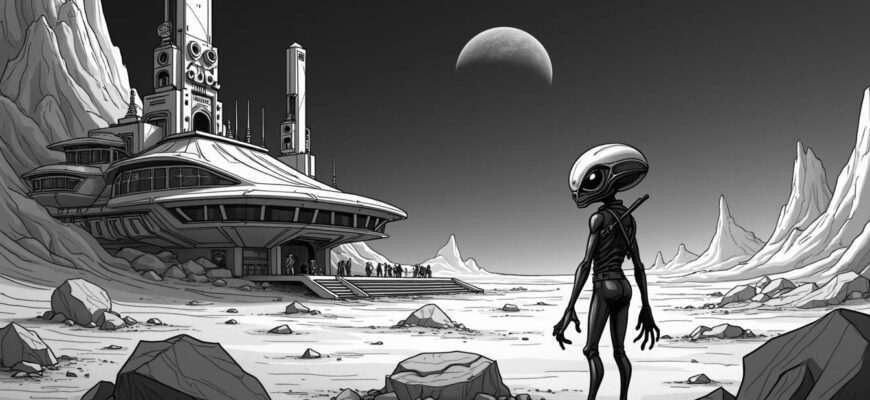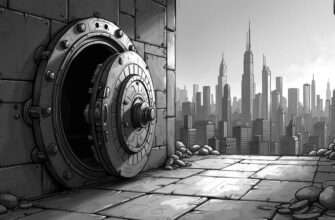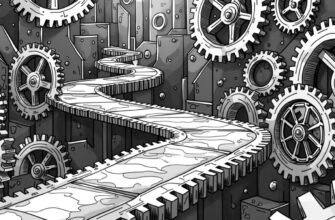I just finished reading “Pluto’s Revenge”, and wow, it really dives into self-sustaining technology. You know, the kind that doesn’t need constant human help and keeps itself running? It’s scary how real this could be considering the direction of blockchain technology and some decentralized platforms today.
Imagine this: a world where machines just keep going without a human touch. It sounds like science fiction, right? But this story is a reminder that the future might be closer than we think, especially with crypto’s self-sustaining nature.
The story of Zrrsk
We follow Zrrsk, an interstellar archaeologist. They stumble upon a mountain peak with a gigantic structure on top of it. A place that still seems to hum with energy after thousands of cycles of abandonment. And what does it say on the side? “PLUTO’S REVENGE.” The tagline? “WE DON’T STOP TILL THE STARS DO.”
Zrrsk’s scanner goes off the charts with readings of radiation. And, shockingly, the place is not just functional, it’s self-maintaining. Robotic arms are out there replacing worn-out parts, drones are monitoring pressure levels, and the energy output is off the charts. I mean, who needs humans?
The implications for us
This story touches on so many points. The idea that technology can outlast its creators is both awe-inspiring and terrifying. The main character’s revelation of humanity’s hubris is a stark reminder that we might be heading down a similar path.
In our world, decentralized platforms and self-sustaining systems are becoming more common. We see it with DeFi applications and smart contracts. But at what cost? Are we, too, creating something that will run without us?
The potential for blockchain technology to create systems that operate autonomously is tantalizing but also raises concerns. Are we ready for a future that might not need us? Or, worse yet, one that could surpass us?








